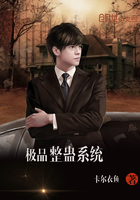AN anxious fortnight was passed by Julia Warren, after this conversation, without bringing any tidings from her friend. She watched, with feverish restlessness, each steam-boat that passed the door on its busy way towards the metropolis, and met the servant each day at the gate of the lawn on his return from the city; but it was only to receive added disappointments. At length Charles Weston good-naturedly offered his own services, laughingly declaring, that his luck was never known to fail. Julia herself had written several long epistles to Anna, and it was now the proper time that some of these should be answered, independently of the thousand promises from her friend of writing regularly from every post-office that she might pass on her route to the Gennessee.
But the happy moment had arrived when disappointments were to cease.
As usual, Julia was waiting with eager impatience at the gate, her lovely form occasionally gliding from the shrubbery to catch a glimpse of the passengers on the highway, when Charles appeared riding at a full gallop towards the house; his whole manner announced success, and Julia sprang into the middle of the road to take the letter which he extended towards her.
"I knew I should be successful, and it gives me almost as much pleasure as yourself that I have been so," said the youth, dismounting from his horse and opening the gate that his companion might pass.
"Thank you--thank you, dear Charles," said Julia kindly. "I never can forget how good you are to me--how much you love to oblige not only me, but every one around. Excuse me now, I have this dear letter to read another time, I will thank you as Iought."
So saying, Julia ran into the summer-house, and fastening its door, gave herself up to the pleasure of reading a first letter. Notes and short epistles from her aunt, with divers letters from Anna written slyly in the school-room and slipped into her lap, she was already well acquainted with; but of real, genuine letters, stamped by the post-office, rumpled by the mail-bags, consecrated by the steam-boat, this was certainly the first. This, indeed, was a real letter: rivers rolled, and vast tracts of country lay, between herself and its writer, and that writer was a friend selected on the testimony of innate evidence. It was necessary for Julia to pause and breathe before she could open her letter; and by the time this was done, her busy fancy had clothed both epistle and writer with so much excellence, that she was prepared to peruse the contents with a respect bordering on enthusiasm: every word must be true--every idea purity itself. That our readers may know how accurately sixteen and a brilliant fancy had qualified her to judge, we shall give them the letter entire.
"My dearest love, "Oh, Julia! here I am, and such a place!--no town, no churches, no Broadway, nothing that can make life desirable; and, I may add, no friend--nobody to see and talk with, but papa and mamma, and a house full of brothers and sisters. You can't think how I miss you, every minute more and more; but Iam not without hopes of persuading pa to let me spend the winter with your aunt in town. I declare it makes me sick every time I think of her sweet house in Park-place. If ever I marry, and be sure Iwill, it shall be a man who lives in the city, and next door to my Julia. Oh! how charming that would be. Each of us to have one of those delightful new houses, with the new-fashioned basement stories;we would run in and out at all hours of the day, and it would be so convenient to lend and borrow each other's things. I do think there is no pleasure under heaven equal to that of wearing things that belong to your friend. Don't you remember how fond I was of wearing your clothes at school, though you were not so fond of changing as myself; but that was no wonder, for pa's stinginess kept me so shabbily dressed, that I was ashamed to let you be seen in them. Oh, Julia! I shall never forget those happy hours; nor you neither. Apropos--I hope you have not forgot the frock you promised to work for me, to remember you by. I long for it dreadfully, and hope you will send it before the river shuts. I suppose you and Charles Weston do nothing but ride round among those beautiful villas on the island, and take comfort. I do envy you your happiness, I can tell you; for I think any beau better than none, though Mr. Weston is not to my taste. I am going to write you six sheets of paper, for there is nothing that I so delight in as communing with a friend at a distance, especially situated as I am without a soul to say a word to, unless it be my own sisters. Adieu, my ever, ever beloved Julia--be to me as I am to you, a friend indeed, one tried and not found wanting. In haste, your "ANNA.
"Gennessee, June 15, 1816.
"P. S. Don't forget to jog aunt Emmerson's memory about asking me to Park-place.
"P. S. June 25th. Not having yet sent my letter, although I am sure you must be dying with anxiety to hear how we get on, I must add, that we have a companion here that would delight you--a Mr.
Edward Stanley. What a delightful name! and he is as delightful as his name: his eye, his nose, his whole countenance, are perfect. In short, Julia, he is just such a man as we used to draw in our conversation at school. He is rich, and brave, and sensible, and I do nothing but talk to him of you.
He says, he longs to see you; knows you must be handsome; is sure you are sensible; and feels that you are good. Oh! he is worth a dozen Charles Westons. But you may give my compliments to Mr.
Weston, though I don't suppose he ever thinks it worth his while to remember such a chick as me. Ishould like to hear what he says about me, and Iwill tell you all Edward Stanley says of you. Once more, adieu. Your letters got here safe and in due season. I let Edward take a peep at them."The first time Julia read this letter she was certainly disappointed. It contained no descriptions of the lovely scenery of the west. The moon had risen and the sun had set on the lakes of the interior, and Anna had said not one word of either.















